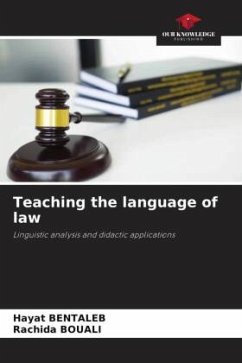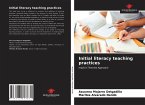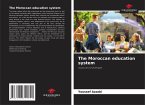Described as slang, dialect, register, genre, style and even a language in its own right, legal French is a specialized linguistic subsystem distinguished by a set of features that have as much to do with the existence of a specialized vocabulary as with phraseological and discursive particularities.The present work is oriented towards a linguistic-didactic approach and aims at studying the functioning of the language in the legal domain and the conditions of its teaching-learning. It is interested on the one hand in the description of the technicality of legal French and the complexity of the disciplinary knowledge taught, and on the other hand in the analysis of the pedagogical practices and the content provided to meet the language needs of legal students. As a result, it allows us to draw a precise portrait of the language difficulties faced by law students and to rethink teaching methods and learning strategies.








